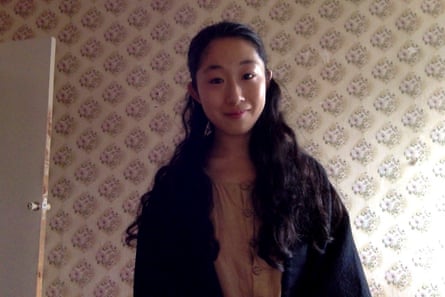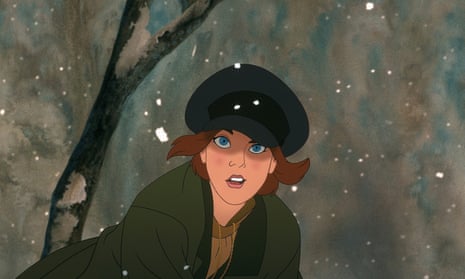I was born in north-east China in a province that was particularly heavy-handed with party propaganda. I learned to march in formation before knowing how to write, and maybe even count. Every morning at school started with a flag ceremony and obligatory salutes to Mao Zedong. Textbooks were illustrated with watercolour Lenins and Stalins, drawn to look much more handsome than they actually were. The propaganda made its way home as well. I think that, even to this day, my father knows only socialist songs.
The life I’ve just described may sound extreme, but in fact it was a relatively free period in the 1990s, after the worst of our state terror and before Xi Jinping’s more recent crackdowns. We never had a democracy, but the 90s were as close to it as we ever got, and life was generally pleasant. The university where my mother taught arranged a one-room apartment for us in the city centre, within walking distance of the local Mao statue. Compared with today’s Chinese academics we couldn’t have been considered rich, but we were always able to buy fish, bananas and peanuts, and even Sprite and other western-branded gifts for my teachers in the hope that they would treat me well at school. I wasn’t considered patriotic enough to be class president; however, the school did allow me a young pioneer uniform when it was my turn to raise the flag.
It was in the middle of this life that my father decided to move to the US for his doctoral studies. My mother followed within a year. I was sent to live with my grandparents and enrolled in the neighbourhood’s best school – that is to say, the most political. I clashed with the teachers almost immediately. These semiliterate relics from the Cultural Revolution couldn’t comprehend that times had changed enough for my parents to leave by legal means. To them, my parents could only be defectors, and therefore I must be an enemy of the people, at all of six years old. The other children were forbidden to talk to me, while I was forbidden to eat any of the school meals. Instead, I was expected to serve them. I remember very little of the anger and hatred I must have felt, but know that at one point I turned over an entire table of hot soup and burned one of the teachers. In hindsight, maybe all this could have been avoided if my grandparents had remembered to bribe the teachers with Sprite.
I rejoined my parents later that year in a new country where the girls wanted to be Disney princesses instead of young pioneers. My Asian peers supplemented their English lessons with princess cartoons, and my parents, expecting me to do the same, borrowed piles of them every week. I initially watched them through communist eyes; in Cinderella, the plight of the proletarians against bourgeois greed was pretty obvious, but I couldn’t understand why she was allowed to live in a palace at the end. It would have made more sense if she had joined the Red Army after Prince Charming liberated her. And in Sleeping Beauty, I really sympathised with Aurora’s disappointment after finding out about her royal roots. It must have hurt to find out that she was an enemy of the people through no will of her own.
What really changed me was the 1997 film Anastasia. Before the first song started and the first talking animal appeared, I saw some familiar faces, straight out of my former life in China: young revolutionaries storming a palace, with the same determined expressions, the same grey or green overcoats, the ushankas, the fists. These were people I recognised very well, only my Chinese schoolbooks drew them as liberators, and the American film drew them as a mob.

I had up to that point not entertained the possibility that communist revolutionaries might be antagonists in any story. I hadn’t known it was even possible to look at them with such fear and hatred. When this world materialised, fully formed, around me, it was as if the sky had turned green, and was at the same time revealed to have been green all along.
The most valuable gift from my American years was critical thinking – the ability to see that the way something is presented is not necessarily how things are. Even there it was not always encouraged, and was sometimes punishable, but at least it was possible to go through the school system and come out with a free mind, which, once earned, becomes the one freedom nothing can take away.
Over the years I found out that my first home town in China, far from the homogeneous and nationalistic place I remember, is ethnically diverse, and had been much more so before the establishment of the current People’s Republic; in addition, it had once been a Japanese colony. And in fact, I’m not even Chinese, but Mongolian with some Turkic blood – now that’s a twist Princess Aurora might have appreciated. People of my ethnic groups had fought against the communists and, after Mao’s takeover of the region, were heavily assimilated. As there were so many non-Chinese influences for the communists to purge, the repression there was particularly heavy-handed.
Although my parents did not discuss it much or openly, I eventually gathered fragments of stories about our family’s involvement in Mao’s revolution. Our relatives covered the gamut – some were direct perpetrators, some victims, others bystanders who, now on two continents, are surrounding themselves with the trappings of ordinary life in a desperate bid to forget. But paralysed as they are by the weight of memories, they are unable to work through them and move on. American passports and western goods haven’t been able to shift them towards life in a democracy.
Eight years ago I left the US for another stepmother country, in order to remember what exactly it is that I may have survived. I chose Estonia, where people have the fortitude to look at the bloodbaths of the past with clear and unflinching eyes, and afterwards, willingly shoulder the responsibilities of democratic life.
And I have thrown myself headfirst into this European life, with its endless academic freedom, a presidential palace within walking distance, the possibility of joining the army without bloodying one’s conscience, classmates running for parliament, The Death of Stalin in the cinemas, almost any professor just an email away, cakes and wooden houses and supreme courts in the same pastel colours, hot water available all day long and shops full of their Annick Goutal and Wolford and Fjällräven and so many brands we have to boycott most of them.
Unlike a free mind, this beautiful reality can be taken away, and I feel constantly haunted by a past and a hypothetical future that must never come into existence. This is still a world in which authoritarian and totalitarian regimes attempt to extend their power some 30 years after the supposed end of history. I have disowned the propaganda of my childhood, yet have spent all my years of freedom with it, in my research during the day and my nightmares afterward.
I still catch myself humming socialist ballads from the 1950s. Some have rather pretty melodies, and they’re so ingrained in me that it’s more a matter of muscle memory than anything else. And I’ve accepted the possibility of never making peace with the past.
In the end, I suppose that there had always been a side of me that hated tyrants in all forms, and rarely took instruction at face value. The raw material for a free mind was always there, and when the opening scene of Anastasia swooped in, my first Socrates-gadfly, I was ready to question everything I had known, except for the innate desire to be free.
